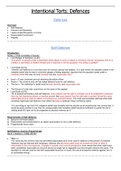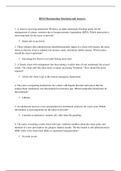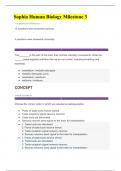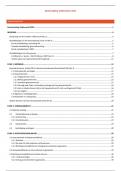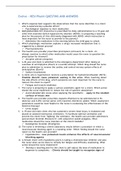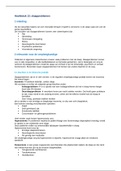Lecture notes
Tort Law: Trespass Defences Notes
This document contains all the necessary lecture and textbook notes for the topic of Trespass Defences. Covers: • Self-Defence • Consent and Necessity • Lawful Arrest/Prevention of Crime • Reasonable Punishment • Illegality
[Show more]
